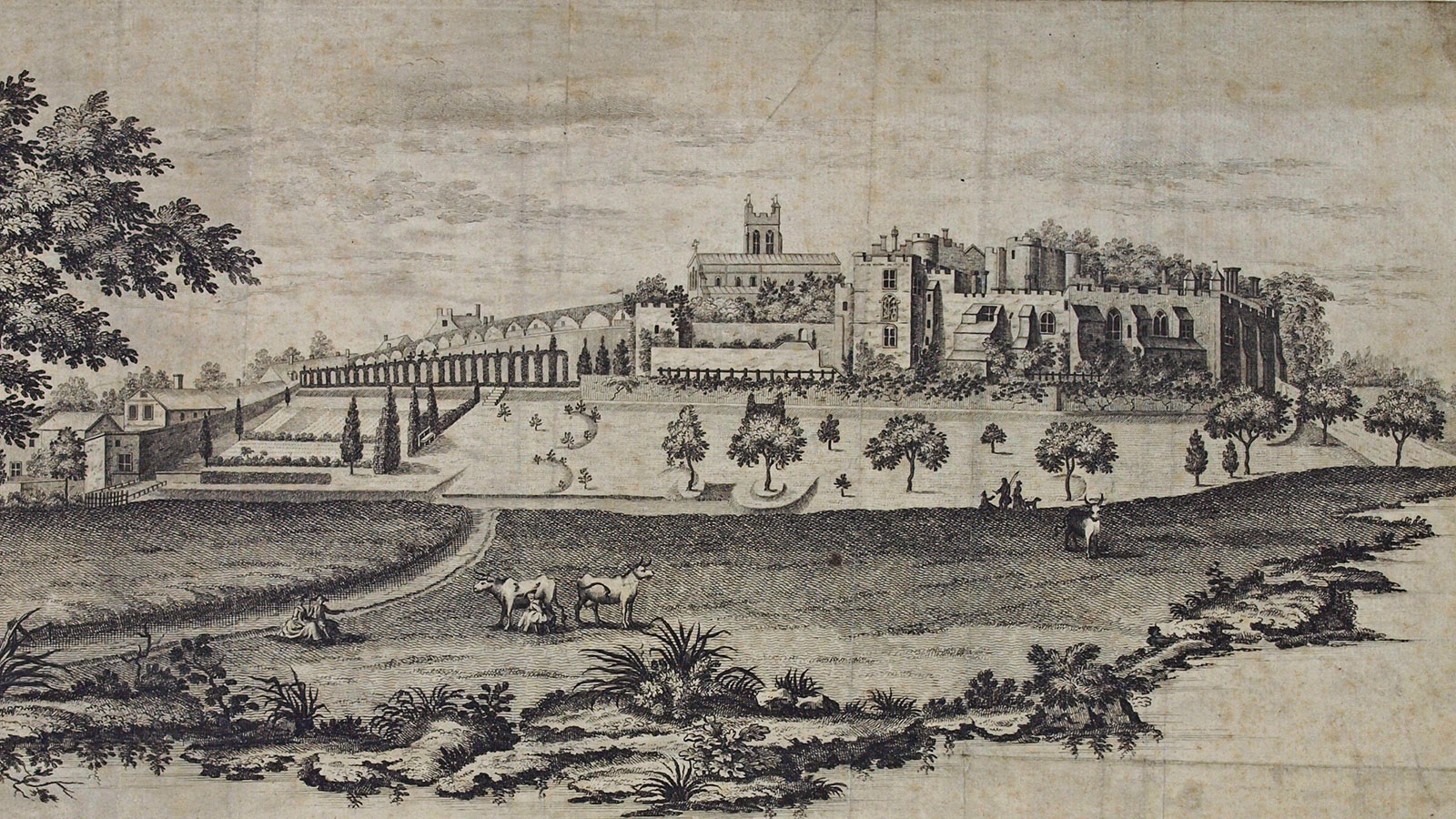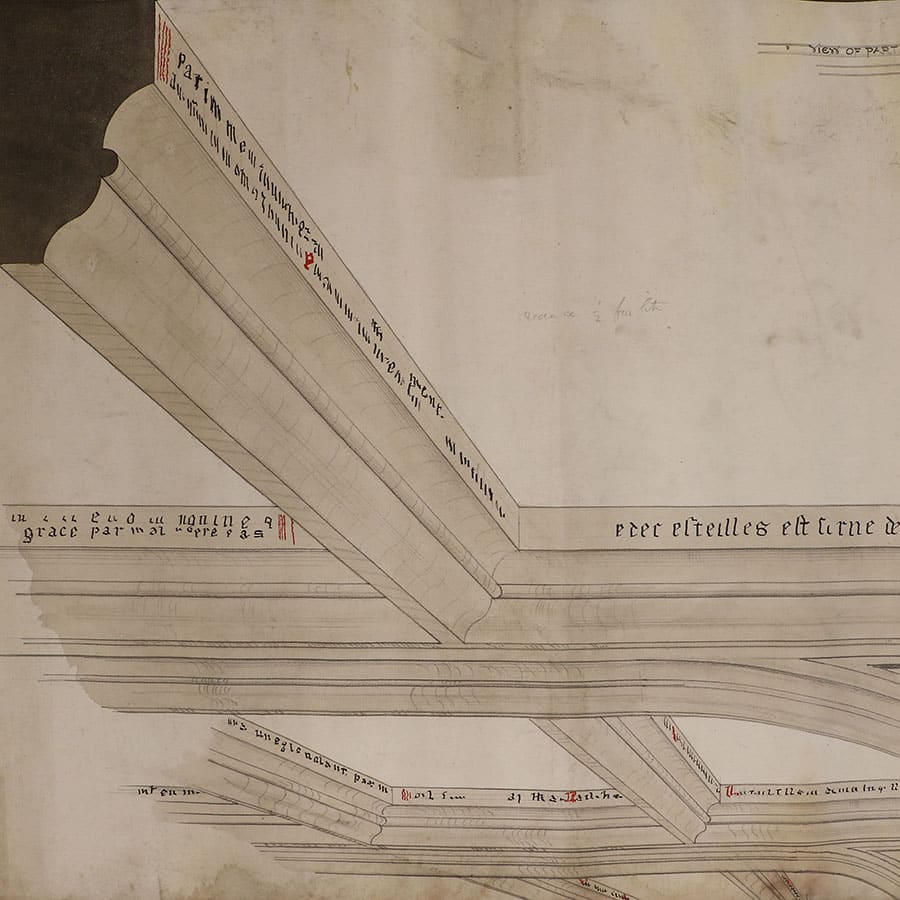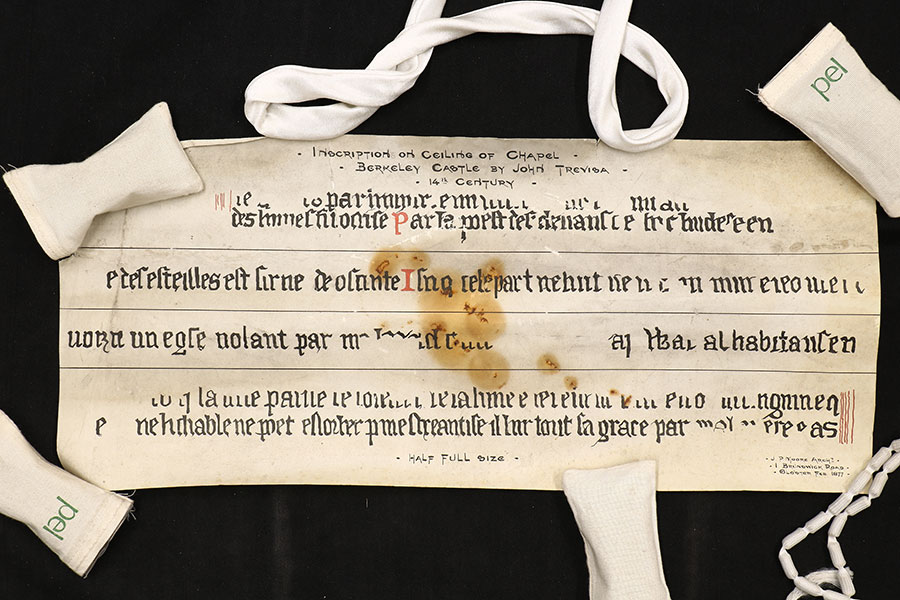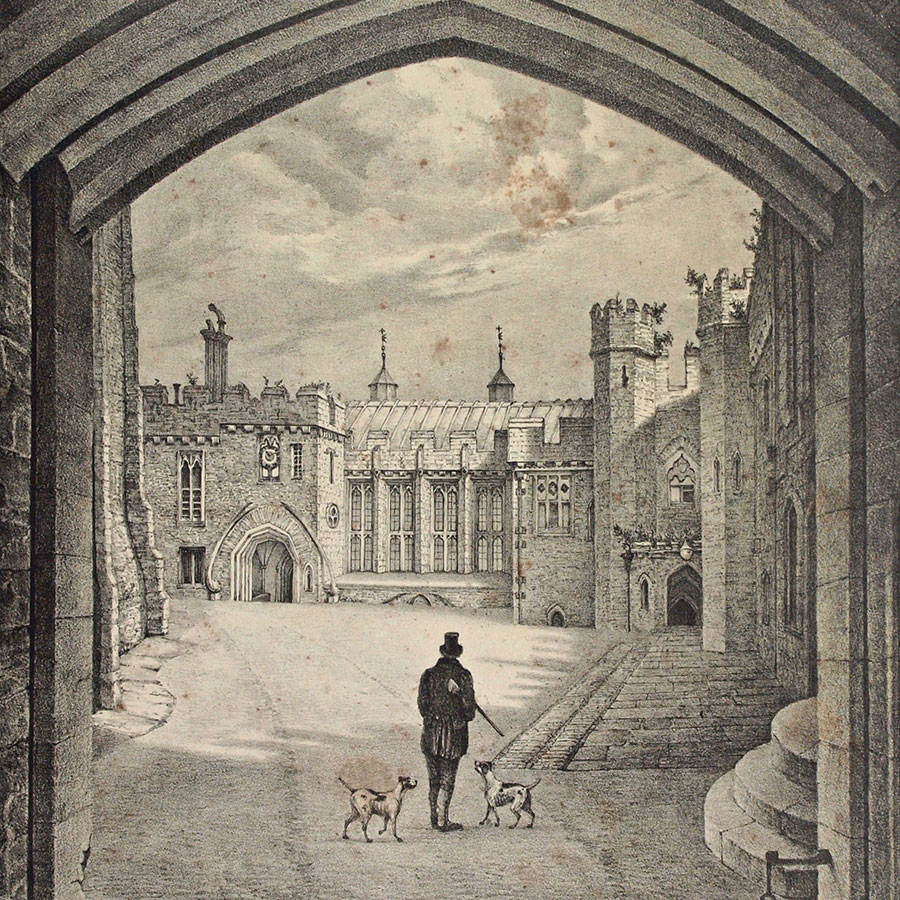
Archives dating from 1154
Archives and Library


Though modest in size compared with those of other great houses, the Berkeley archives are rich both in age and quality. The earliest documents date from 1154 and are older than the castle itself.
All the documents dating from before 1492 (the date at which the castle passed into royal hands for over 60 years) have been catalogued in A Catalogue of the Medieval Muniments at Berkeley Castle, edited by Bridget Wells-Furby, published by the Bristol and Gloucestershire Archaeological Society (BGAS) in 2004. This is available on the National Archives’ Discovery catalogue portal. All these documents and most of those for the Tudor period have been microfilmed and can be consulted by appointment at Gloucestershire Archives; (see link below).
A list of the microfilms and their contents is available at the Gloucestershire archives; (see link below). Please note that the document references on the microfilms are the original references given at the end of the descriptions on the medieval catalogue.
Enquiries
Enquiries about former estate properties and tenants should be directed in the first instance to Mr Peter Yardley, an expert on the 19th and 20th century of the estate. He will make a small charge for the benefit of the Berkeley Castle charitable Trust.
All other enquiries should be sent to Karen Davidson, the Estate Archivist at the Castle. Please note this service attracts fees as follows:
Simple enquiries which can be answered without reference to databases or documents: free of charge
Enquiries requiring a search of the catalogue databases: search fee of £20.00, including a report of the results found.
Research: £40.00 per hour, minimum charge of £80 to cover two hours’ work.
Photography/supply of images for private research, not for publication or distribution: if images are already in our image bank, £30 for up to 20 images, £2.50 per subsequent image; if we do not already have images, £40 per hour of photography work required for up to 20 images, £2.50 per subsequent image.
Reproduction/publication: £50 UK, £100 worldwide plus copy of publication; please note that reproduction or publication, including on the internet, is not permitted without prior written permission from the Estate Archivist.
Please check the ‘Frequently Asked Questions’ section below before sending your enquiry in case it is answered there. The Estate Archivist only works on Thursdays, so there may be a delay in responding to you.
We are not able to answer general enquiries or give advice on research that does not directly concern the Berkeley Castle archive.

If you are tracing your family history and think you may be related to the Berkeley family, please see the Berkeley One-Name Study, which contains information about over 3,700 individuals with the name of Berkeley. The study’s maintainer, Nick Berkeley, may be able to answer specific queries (nickberkeley@live.co.uk).
If you cannot find out what you need to know from the microfilms at Gloucestershire Archives and need to visit to consult documents, you may visit the archive by appointment with the Estate Archivist. Research space at the Castle is very limited and access is only possible on Thursdays, so if you do need to visit, please give as much notice as you can so that we can make arrangements for you to view the documents you would like to see.
For further information about the types of material we hold and the enquiries we can answer, please see the ‘Frequently Asked Questions’ section below.

Neville Hours
The Neville Hours
This is one of the illuminated manuscripts in the Castle archive. It is a prayer book or “book of hours” and it dates from the early 15th century. It once belonged to George Neville, Baron Bergavenny, who was distantly related to the Berkeley family, and it was bought by the 8th Earl of Berkeley in 1932. The illuminations include scenes from the Bible. Pictured here are St Christopher (left) and St George and the dragon (right).
Publications
Editions of some of the more important documents have been published via the Bristol and Gloucestershire Archaeological Society (BGAS):
R W Hoyle (ed) The Military Survey of Gloucestershire, 1522 BGAS 1993
D Walker (ed) The Cartulary of St Augustine’s Abbey, Bristol BGAS 1998
B Wells-Furby (ed) The Great Cartulary of Berkeley Castle c.1425 BGAS 2014
L Ehrsam Voigts and A Payne Medicine for a Great Household (c.1500): Berkeley Castle Muniments Select Book 89 in Studies in Medieval and Renaissance History, third series, vol XII 2016
A detailed economic and social study of the medieval estate has also been published: B Wells-Furby The Berkeley Estate 1281-1417: its economy and development BGAS 2012
A detailed account of the evidence from the Castle muniments about the last months of Edward II and his imprisonment at the Castle appears in Edward II: his last months and his monument by J Barlow, R Bryant, C Heighway, C Jeens and D Smith, published by BGAS and Past Historic in 2015. (Written by the former Castle Archivist and one of our long-standing volunteers)
The more recent of these volumes can be purchased from the BGAS or from the Castle shop.
The old library is also housed in the Muniment Room. It is a small collection but contains some volumes of which few copies are recorded elsewhere in the UK. There is an author index which is at present only available at the Castle. Enquiries should be directed to the Estate Archivist.
The Lives of the Berkeleys by John Smyth is a collection of detailed biographies of the main members of the family from the 11th century to the early 17th century. It is available online here: Volume I and Volume II.
A Description of the Hundred of Berkeley by John Smyth is a detailed history of the Hundred and forms volume III of his work on the family muniments. It is available online here: Volume III.
Your questions answered
We do not hold any personal records of the Berkeley family in the Muniment Room. The Castle muniments focus on the estates and properties owned by the family over the centuries.
We only hold records of the main Castle branch of the family and their estates and properties. We do not hold records of other branches of the family, for example the Berkeleys of Stoke Gifford near Bristol, the Berkeleys of Bruton in Somerset, the Berkeleys of Cotheridge in Worcestershire and the Barons Berkeley of Stratton in Cornwall. Most of these families split off from the main family in the medieval period. We also do not hold records of the Berkeley family of Dursley, who held the Castle before it passed to the current family in 1154. For information about this family, see articles in the Transactions of the Bristol and Gloucestershire Archaeological Society by Sir Henry Barkly here and here.
We do not hold any records relating to the Berkeley Hundred in Virginia; the Castle branch of the Berkeley family were not involved in the settlement of the Berkeley Hundred in Virginia, although a member of the Stoke Gifford branch of the family was, along with people from Berkeley including George Thorpe. The papers of John Smyth, the long-serving steward to the Lords Berkeley, which may include material sent back from Virginia, are kept at Gloucestershire Archives and you can see the catalogue here. Additional papers of John Smyth relating to the settlement in Virginia are held at the New York Public Library and you can see the catalogue here. Canon Eric Gethyn-Jones’ book ‘George Thorpe and the Berkeley Company: A Gloucestershire Enterprise in Virginia’ (Alan Sutton 1983) is a good history of the settlement.
We are not able to do this as we do not keep records of every person with the surname of Berkeley, but we recommend that you check the Berkeley One-Name Study, which contains information about over 3,700 individuals with the name of Berkeley, and may help you to make the link yourself. The one-name study’s maintainer, Nick Berkeley, may be able to answer specific queries. As the main Castle family have been quite prominent throughout history, there is lots of information about them online, including on websites such as the Peerage and Wikipedia, as well as John Smyth’s biographies of the main members of the family between the 11th and 17th centuries (available online here: Volume I and Volume II).
If you need to look at original documents for your research, you may visit the Muniment Room by appointment with the Estate Archivist. Research space at the Castle is very limited and access is only possible on Thursdays, so if you do need to visit, please give as much notice as you can so that we can make arrangements for you to view the documents you would like to see.
It is not generally possible to accommodate people other than the person who needs to see the documents, as the space available for research is very limited.
Records relating to estate properties have not been fully listed, and were arranged by name of tenant rather than name of property. This means that in order to find a particular property we need to know the name of a tenant.
Census records on Ancestry, the 1910 Lloyd George Survey and the relevant tithe map and apportionment should help you to find this information.
Copying is not permitted without the express written permission of the Estate Archivist, whether it is by means of photography or by printing from the microfilms held at Gloucestershire Archives. Copying requests for private research purposes are usually granted, but written permission must be gained in advance.
Permission must be sought if images of or extracts from the documents are to be published, even if you have already been given permission to make copies for your research. Acknowledgement must be made with any publication and the form of words to be used for this will be supplied by the Archivist if permission is given. We do not make a copyright charge, but we do ask for a copy of the publication for our records.
It may be possible to arrange for photographic copies to be made and sent to you. Please note this service attracts fees as follows: Photography/supply of images for private research, not for publication or distribution: if images are already in our image bank, £30 for up to 20 images, £2.50 per subsequent image; if we do not already have images, £40 per hour of photography work required for up to 20 images, £2.50 per subsequent image.
The Estate Archivist can undertake research in the muniments. Please note this service attracts fees as follows:
Simple enquiries which can be answered without reference to databases or documents: free of charge
Enquiries requiring a search of the catalogue databases: search fee of £20, including a report of the results found.
Research: £40 per hour, minimum charge of £80 to cover two hours’ work
Enquiries about the 19th and 20th century history of the estate can be sent to Peter Yardley. He will make a small charge for the benefit of Berkeley Castle Charitable Trust. Because of the way the records were kept, we will need to know the name of a tenant at a particular date in order to find out information about estate properties. We have very little information about estate employees.
All of the medieval and most of the Tudor period documents have been microfilmed and can be accessed in the research room at Gloucestershire Archives. A list of the microfilms and their contents is available here; please note that the document references on the microfilms are the original references given at the end of the descriptions on the medieval catalogue.
